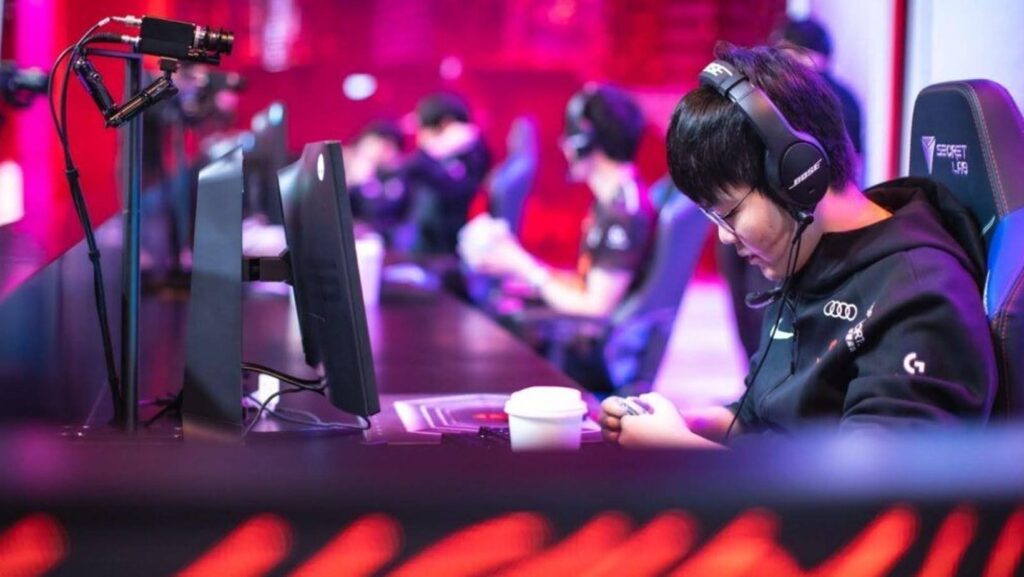Esports has become one of the main areas of the gaming and entertainment industries. This industry is interesting for its high-profile victories, millions of broadcasts, and large fan base. However, behind these advantages and ovations lies a problem — the emotional burnout of players. Constant pressure, high expectations, and endless training gradually wear down even the strongest players. In this article, we will explain why burnout occurs in esports, how it affects the game, and what methods can help to cope with it.
Causes of Burnout in Esports
Emotional burnout is present in many industries, including esports. It can not be explained only by overwork from matches and training, it is the result of a combination of many factors. Most professional players spend more than 10 hours a day in front of the monitor, training the necessary skills. However, it is difficult for the human brain to withstand continuous concentration and load, it is necessary to find a balance between work and rest.
The constant pursuit of results, the fear of losing one’s place in the team or contract with the organisation creates psychological pressure on players, worsening their mental and physical condition. It is especially difficult for beginners to cope with the above reasons. In addition, criticism from the community also affects the psychological state of players.
Burnout in esports often begins with the feeling that even victories do not bring satisfaction. A person continues to play, read valorant news and similar gaming platforms out of compulsion, losing their inner motivation. To prevent this from happening, players need to have personal space. Without the opportunity to change the environment or spend time alone, the brain will find it difficult to recover. Burnout will accumulate and the player may start to play worse.
The Psychological Pressure of the Esports Scene
Many people think that esports is just video games, but they are mistaken. The psychological strain in esports is much greater than what the viewer sees. Every professional match involves preparation and strategy and requires skill, endurance and self-control. As you can read in cs news, even a minor mistake in competitive games can cost a team the victory. Therefore, teams constantly analyse their actions, replay matches and adapt to their opponents’ strategies.
However, the pressure is present not only in the gameplay. Since players are media persons, public attention plays a huge role. Fans, commentators, tournament organizers and media create an atmosphere of constant observation, which is not very comfortable. Responsibility creates a feeling in players that you need to be perfect not only in the game, but also outside it.
In addition, constant immersion in the flow of information creates an additional burden on the psyche. A person feels that even during rest he should remain “in context,” and this does not allow him to fully relax. To ensure that players are always in good shape and feel well, teams work with psychologists.
Physical and Lifestyle Factors

Although esports is mostly a mental activity, physical exertion also plays an important role. Players spend long hours sitting, which can lead to posture problems and pain in the back, neck and wrists. In addition, sleep deprivation, poor nutrition and excessive caffeine consumption have a negative impact on health. To stay healthy and feel great, players are advised to engage in regular physical activity of varying intensity.
Research in this area shows that insufficient physical activity reduces the brain’s ability to concentrate. As a result, players start to make mistakes more often, react more slowly, and as a result have a worse result. The best professional teams have already integrated physical training, yoga and outdoor walks into their training programs. This helps to keep a good atmosphere in the team and keep the body in good shape.
Among the useful tips are regular sleep for at least 8 hours, planning time outside the computer, correcting nutrition and hygiene of the workplace. The plus will be if the player has a clear structure of the day, including training, analysis, rest and time for personal life. Healthy everyday habits form stability not only physically but also psychologically. Taking care of health in eSports is not an option, but part of professional training.
Strategies to Stay Mentally Strong
Mental stability is a serious weapon of an e-sportsman. However, it does not appear automatically, it needs to be formed daily. One of the most effective ways is a clear planning of loads, players set the time limits of training and do not violate the sleep mode. This helps less often to face burnout and other psychological problems.
The next step is to work with a psychologist or mental coach. The best eSports organizations, such as NAVI, Fnatic or Team Liquid, already have specialists who help the Comanche cope with stress and maintain motivation. For this, relaxation, respiratory control and concentration techniques are used.
To be a well-rounded person, it is important to have hobbies outside of gaming. These can be sports, music, or creative pursuits — anything that helps restore emotional balance. Players who have alternative sources of enjoyment find it easier to cope with defeat and the pressure of competition.
The team atmosphere is also important. Trust between players, openness to communication, and support in difficult moments all create an environment that is pleasant to play in and prevents burnout. Esports teams where mutual understanding reigns usually perform better and remain at the top level for longer.
Conclusion
Putting all the facts together, we can say that emotional burnout in esports is a systemic problem that affects a number of factors. From mental and physical health to social relationships between players, each element needs to be addressed. To remain competitive, esports players must not only train the necessary skills, but also take care of their mental state. Regular rest, physical activity, healthy eating, and professional psychological support are the foundation of a long-term career in esports.
